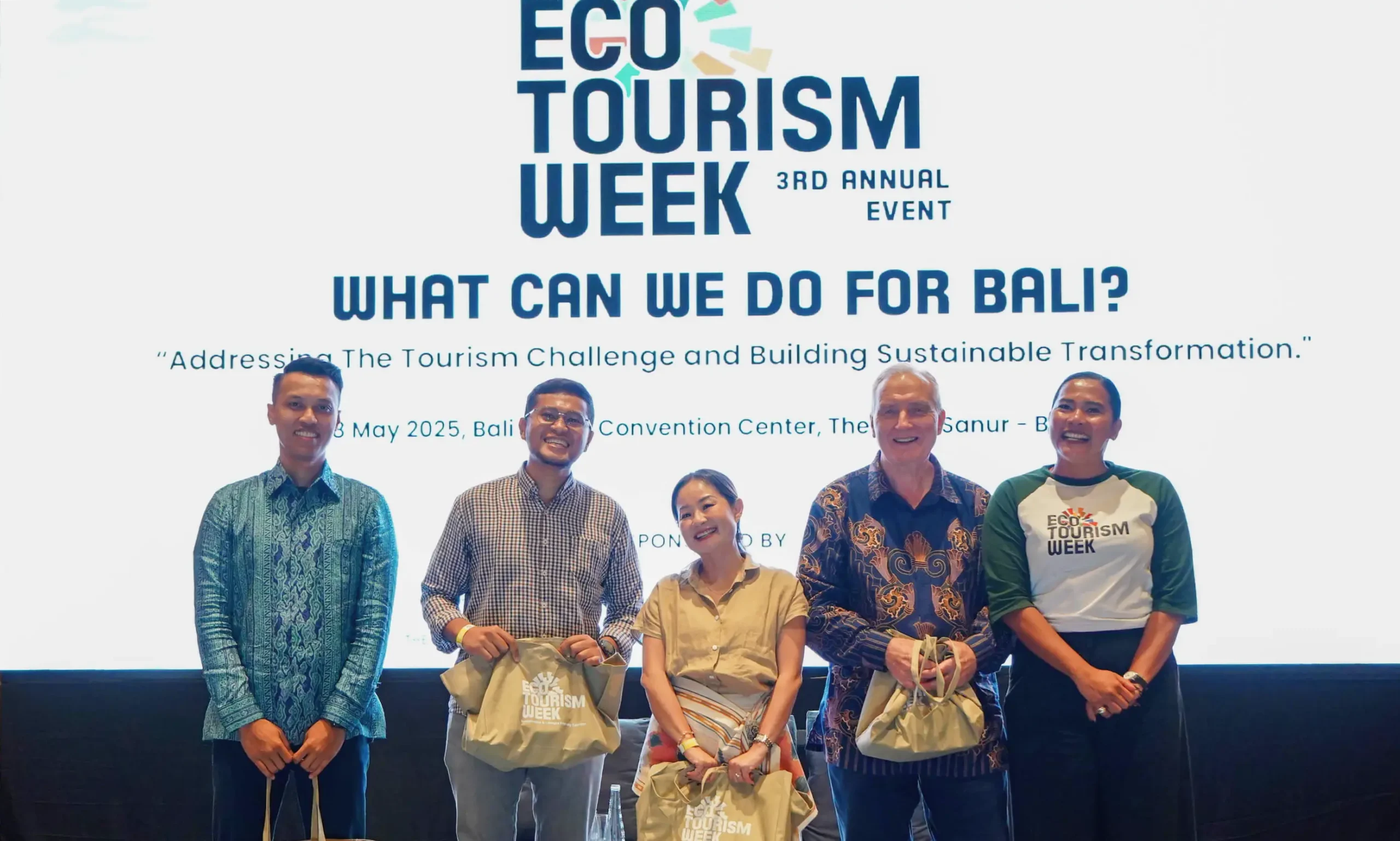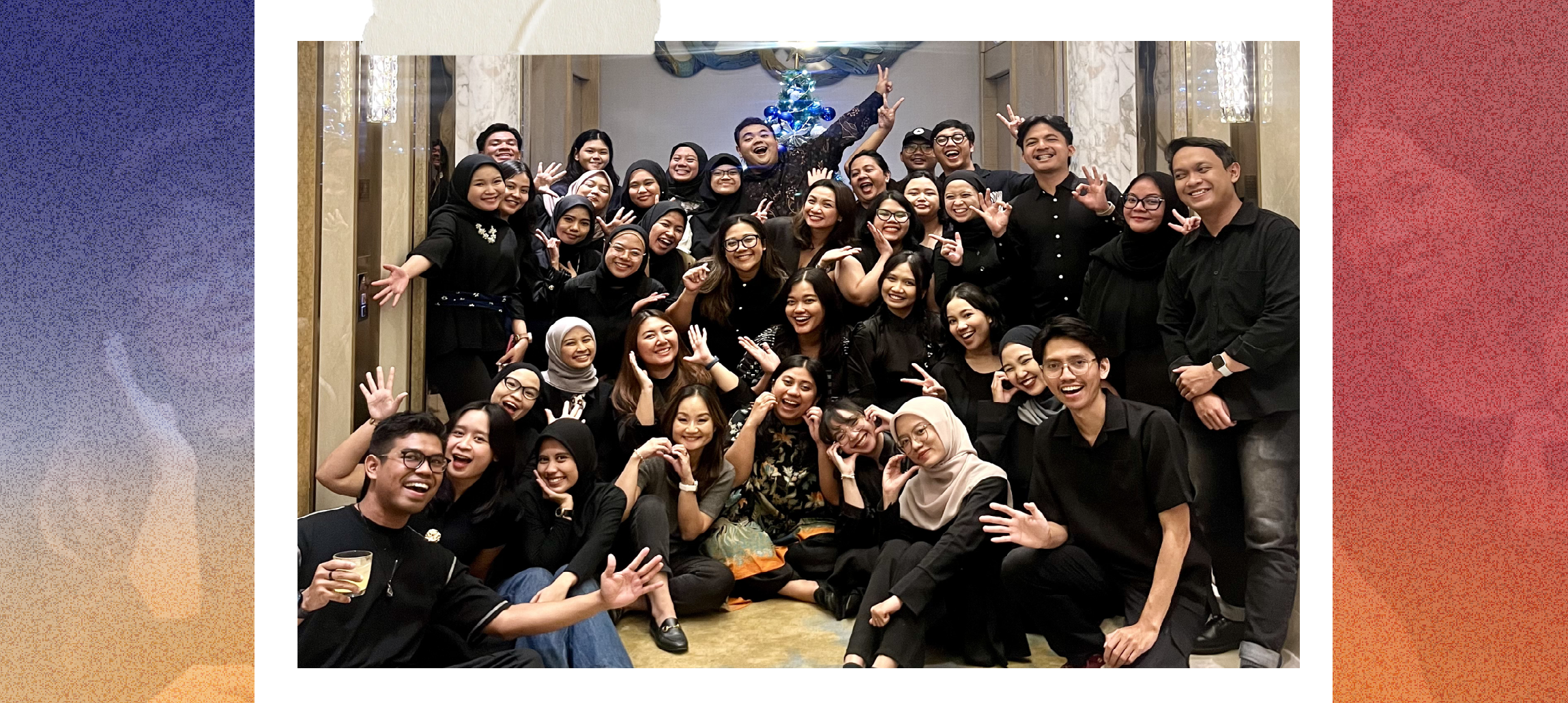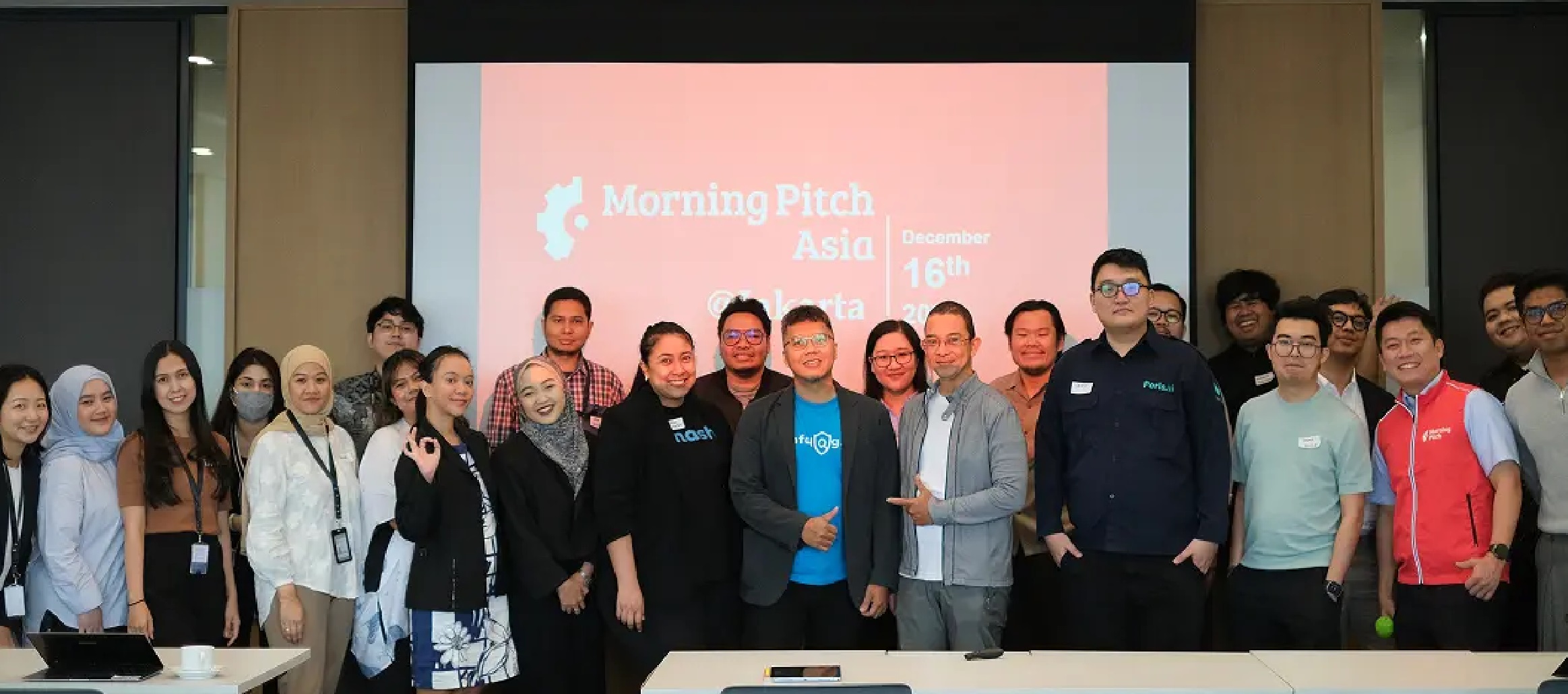In the face of mounting pressures from over-tourism, waste, and environmental degradation, global destinations are confronting a simple reality: tourism growth without sustainability is a crisis waiting to happen. Bali, long a favourite among travellers for its natural beauty and cultural richness, has become a key laboratory in this urgent global shift. On Wednesday, 28 May 2025, Chairperson Faye Wongso hosted the 3rd Eco Tourism Week 2025 at The Meru Sanur under the aegis of Eco Tourism Bali. Stakeholders from online travel platforms, hospitality investors, and local eco-tourism practitioners assembled to discuss how digital sustainability and cultural preservation can safeguard the future of tourism.
Innovation in Response to Over-Tourism Demands
Online travel platforms are no longer just marketplaces, they are change agents. At the forum, Booking.com shared global data showing an increasing concern among travellers about traffic congestion, pollution, waste, and overcrowding. In response, they launched a sustainability certification filter, enabling travelers to more easily find accommodations that meet defined environmental and social benchmarks.
Meanwhile, in Southeast Asia, tiket.com introduced TiketGreen, offering more accessible, sustainable travel options for the regional market. Together, these reflect a broader trend: travellers are now using platforms not just for price or convenience, but for values.
This is consistent with broader market data. According to a report by Credence Research, the size of Indonesia’s sustainable tourism market was estimated at USD 17,349.5 million in 2024 and is projected to grow to USD 117,413.2 million by 2032, at a compound annual growth rate (CAGR) of 27.0%. Such growth underlines sharply rising demand for eco-friendly, culturally aware travel options.
From TripAdvisor to Investor Reports: Metrics Reshape Valuation
If consumers demand sustainability, investors are listening. At the event, hospitality investors emphasized that sustainability metrics are becoming part of risk and value assessment frameworks. Hotels and resorts are now evaluated not only in terms of location, room count, or projected revenue, but also their carbon footprint, waste management, impact on local ecosystems, and relationships with community and culture.
This shift is supported by research: a study of 387 tour and travel SMEs in Bali found that green service innovation (e.g., environmentally-friendly operations) significantly improves business performance. Also, broader analyses show that Indonesia is embracing ecotourism at both local and regional levels.
Thus, investment decisions are increasingly contingent on sustainable practices. For many investors, the “sustainability score” is no longer a checkbox but core to due diligence.
Local Voices, Cultural Authenticity, Practical Tools
Eco Tourism Bali introduced sustainability indices, which are comprehensive guides designed to be accessible for all tourism actors, including hotels, homestays, and operators. These indices provide step-by-step instructions on how to preserve what makes Bali culturally rich while integrating future-proof solutions. They offer measurable, locally relevant benchmarks for resource management, cultural preservation, and community engagement, allowing all types of accommodations to evaluate their sustainability practices.
The data show that while tourism drives employment (hotel occupancies, visitor numbers) and contributes to regional economies, there are serious environmental and social trade-offs. A 2024 study on overtourism in Bali highlights how infrastructure struggles under mounting traffic congestion, public utilities face increasing stress, waste management remains underdeveloped, and cultural authenticity is at risk of being compromised.
Practitioners at the forum agreed: sustainability indices help by offering measurable, locally relevant benchmarks. They allow small homestays as well as large resorts to evaluate where they stand in resource management, cultural preservation, and community engagement.
Bridging Digital, Capital & Community
What emerged from the discussions was a triangular model of sustainable tourism that connects digital innovation, investment capital, and community stewardship. Digital platforms like Booking.com and tiket.com are not just marketplaces, they are change agents, shaping traveler behavior by offering tools such as certification filters and eco-friendly options, and thereby making sustainability a visible and integral part of the booking experience.
Investors, on the other hand, bring more than just money, their insistence on green metrics has begun to redefine what makes a project viable, ensuring that hotels and resorts prioritize long-term environmental and social resilience. At the same time, local communities and eco-practitioners remain the custodians of cultural legacy, protecting authenticity while guiding how development unfolds. These local actors, including homestay owners, cultural guides, and community leaders, play a crucial role in ensuring that sustainability is not just a buzzword, but a lived reality in the tourism industry. The challenge lies in weaving these forces together so that digitalization does not erode identity, investments are culturally sensitive, and local actors are empowered as active stewards rather than passive participants.
Sustainability as the New Due Diligence
By the close of Eco Tourism Week 2025, one unmistakable message resonated: sustainability is no longer optional, it is essential. The future of hospitality in Indonesia will see hotel valuations increasingly tied to their sustainability commitments. At the same time, investors will gravitate toward projects that are transparent about their carbon footprint, waste management systems, and engagement with local communities.
Travelers, too, will continue to filter their choices through the lens of environmental responsibility and cultural authenticity. In Indonesia, and especially in Bali, the survival of tourism hinges on harmonizing these forces. Digital platforms, investors, and local communities must work together to preserve what makes destinations unique: their culture, environment, and identity.
Tourism stakeholders are invited to treat sustainability and authenticity not as a trend but as the foundation of daily operations, because if what is authentic is lost, the very reason for traveling disappears with it.
Grow Locally, Expand Globally with KUMPUL
KUMPUL accelerates growth by connecting entrepreneurs with strategic networks, exclusive resources, and expert insights. As Indonesia’s leading entrepreneurship ecosystem enabler, KUMPUL strengthens local communities while facilitating two-way global market access, helping international businesses tap into Indonesia’s dynamic ecosystem and supporting local entrepreneurs in expanding worldwide. Through impactful collaborations with key industry players, KUMPUL empowers entrepreneurs to scale efficiently, compete globally, and drive meaningful impact.
Ready to be part of this journey? Complete this form and join KUMPUL in shaping the future of entrepreneurship!





